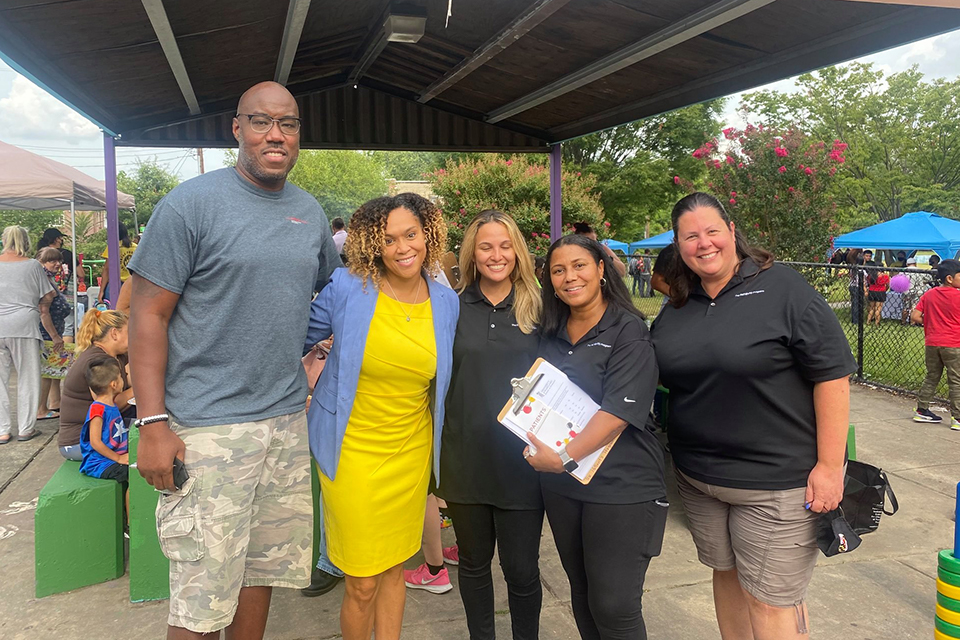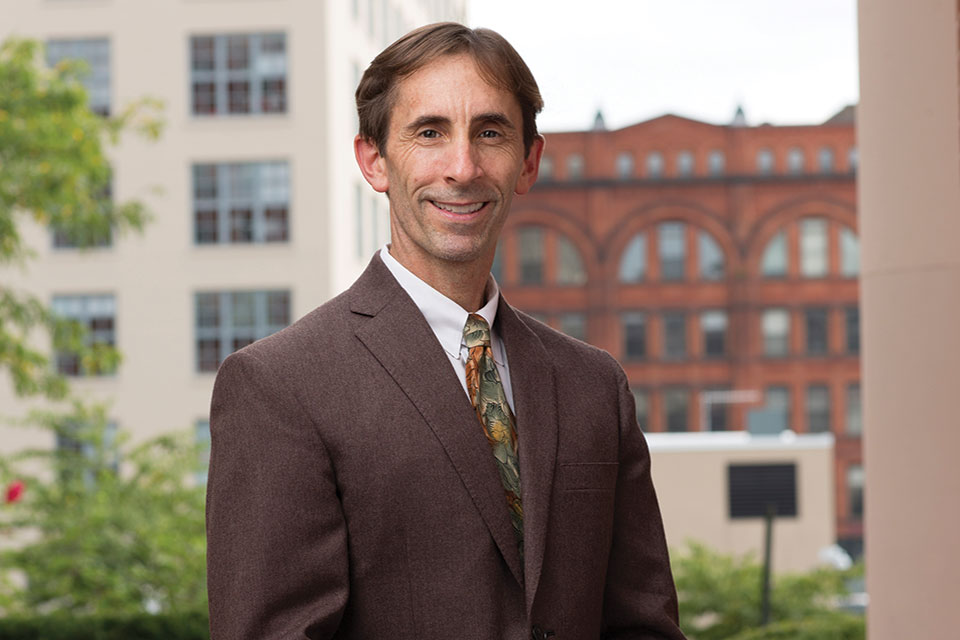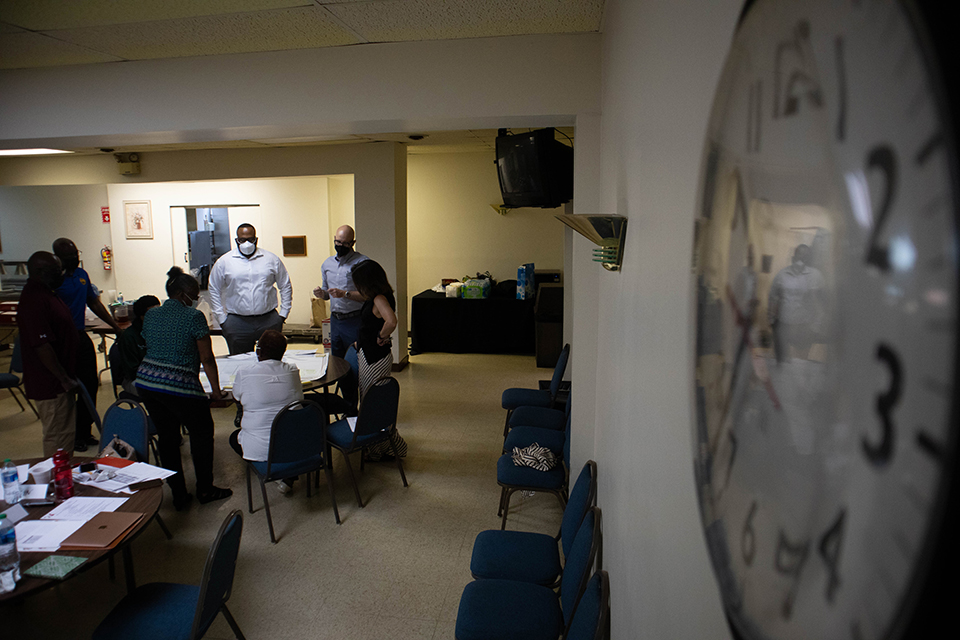PATIENTS Program Grant Establishes Collaboration with Southwest Partnership in Baltimore City
Researchers and community members attend interactive training sessions together to discuss health care research and patient-centered outcomes

By Lou Cortina
August 25, 2021
The PATIENTS Program at the University of Maryland School of Pharmacy (UMSOP) is collaborating with the Southwest Partnership (SWP) to bring the voices of Baltimore City residents into the discussion about health care research and patient outcomes.
Through a two-year, $250,000 funding award from the Patient Centered Outcomes Research Institute (PCORI), the collaboration is working with communities in Southwest Baltimore to take part in patient-centered outcomes research (PCOR) and comparative effectiveness research (CER). The project is titled COmmunity Based Development of CollaboRatIVE and Sustainable PartNerships in PCOR/CER (CO-DRIVEN).
Michelle Medeiros, MA, MS, CCRP, director of research for the PATIENTS Program, leads the project, which advances the mission of the program’s to engage in patient-centered outcomes research aimed at reducing health inequities and improving the well-being of communities and their residents.
The project, which began in early 2021, formed a six-member stakeholder advisory board that consists of three Southwest Baltimore community members and three University of Maryland, Baltimore (UMB) researchers. Materials for PCOR and CER training have been developed and are being delivered in virtual and in-person sessions.
The first training in August was virtual and included an introduction to PCOR, engagement, and research as well as information on a 10-step framework for continuous engagement that was developed by PATIENTS Program executive director C. Daniel Mullins, PhD, professor and chair of the Department of Health Services Research at UMSOP. A similar session is scheduled to be held in October.
“Attendees receive flashcards that describe methods for engaging community stakeholders in a project such as using focus groups, meetings, or print materials,” Medeiros said. “Attendees can see what the 10 steps look like on their flashcards and then use it for an interactive session. We also talk about the social determinants of health.
“Researchers and Southwest Baltimore community members attend together, so we can set a level playing field, do introductions, and really just say, ‘We’re all here, we’re all equal, and we’re all at the same table.’ These sessions are geared toward having an open dialogue.”
The final part of the CO-DRIVEN project involves documenting and disseminating the lessons learned during the process.
“Bringing the voice of patients and community stakeholders to the research table, where there hasn’t been a seat in the past, drives me to build new relationships with our community,” Medeiros said. “With this project, we are building a bridge between the academic research resources of UMB and the lived experiences of our Southwest Baltimore neighbors. This partnership will be the foundation on which future research is co-developed, research that brings the voice of the community in from the beginning, not as an afterthought.”
SWP is made up of seven neighborhood associations and 13 equal partners that work together to build community in Baltimore. It includes residents, business owners, workers, visitors, church members, and partners in the neighborhoods of Barre Circle, Franklin Square, Hollins Market, Mount Clare, Pigtown, Poppleton, and Union Square. Among the partner institutions are UMB, the University of Maryland BioPark, and the University of Maryland Medical Center.
Elizabeth Weber, MSW, program director/deputy director for SWP and a University of Maryland School of Social Work graduate, was part of the team that put together the PCORI application. She is SWP’s project lead for CO-DRIVEN and says the project aligns well with SWP’s mission.
“Neighborhood leadership development and working to make sure that community members have opportunities to make decisions about their communities is central to the mission of the Southwest Partnership and its member neighborhood associations,” Weber said. “These trainings are a great opportunity for neighbors to work alongside researchers and understand ways in which health care research can be done better — and how community members can play a pivotal role in making that happen.”
Mullins, meanwhile, called the PCORI award “transformative.”
“It builds upon a community-based organization’s interest in community-academic partnership and transforms the relations between the Southwest Partnership and UMB from one that focuses mainly on outreach and service to one that includes discussions about research,” he said.
“In a city where many residents are distrustful of research, it is more important than ever to have conversations about what research is and how it can benefit more people if the way research is conducted is more patient-centered. I am really proud of Michelle Medeiros and the Southwest Partnership for developing this new patient-centered outcomes research collaboration.”



